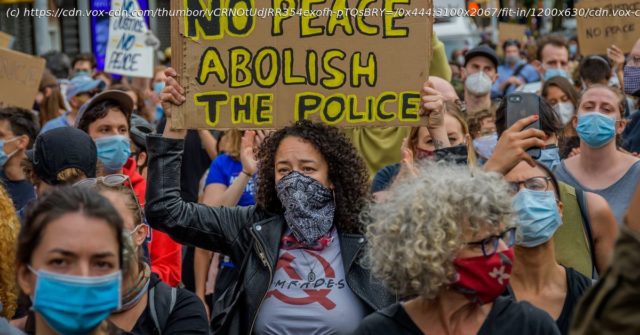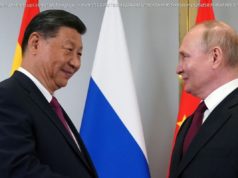It isn’t just a policy proposal. It’s also an idea of how the country could be.
In the wake of heavy police pushback against the nationwide protests against police brutality, spurred by the death of Minneapolis resident George Floyd, an idea that was previously confined to the far-left reaches of the American discourse has gained rapid adoption across the broader left: Abolish or defund the police.
At first blush, the notion that modern police departments could be defunded and dismantled seems, to many, like a misguided impulse from out of nowhere. Without police departments, how will we deal with violent crime? Sure, many on the left would agree that the war on drugs that has put so many people behind bars — especially people of color — must be radically overhauled or completely ended. But what about murder? Are we not going to arrest murderers anymore?
This concern has been raised by lots of people online, including some of my liberal colleagues. Few on the left would disagree that modern, hypermilitarized police forces have shown little regard for anyone or anything that doesn’t directly relate to the police or the protection of the interests of corporations and other business owners. (Even then, police departments nationwide haven’t done a great job of preventing theft.) And few on the left would disagree that heavy police reform is necessary, possibly at a federal level, or that the right to peaceful assembly guaranteed by the Constitution’s First Amendment should be reinforced as well. But getting rid of the police? How would you do such a thing?
There’s a vast swath of well-argued writing on the concept of abolishing the police and the closely related concept of prison abolition, and what those ideas might look like in practice. (See here and here and here and here and here, as well as this more succinct Twitter thread from my friend and Eater colleague Jaya Saxena.) But I’m not here to inform you of that. I’m not even really here to tell you that the police should be abolished — I’m no policy expert. But a lot of people I tend to agree with on other questions of sociopolitical interest, people who know what they’re talking about, think doing so, or at least significantly reducing the power of the police and reimagining their function, is probably a good idea.
But if such a drastic approach seems so wild as to be impossible, don’t think about “abolish the police” as merely a policy proposal, though it is that. Think about it as a narrative that holds the power to change how people think. From that perspective, “abolish the police” is an objective to rally behind, one that conveys a much more powerful narrative than “completely rethink how police departments in the US are funded and what laws are meant to govern them.”
Viewed that way, it also offers a lesson in how, if the broader left is going to make meaningful advances with regard to its progressive agendas in the near future, it needs to work on its storytelling skills as much as its policy proposals.
When we think of “storytelling” in the US, we tend to think of a three-act structure — a character climbs a tree; people throw rocks at the character; the character climbs out of the tree. It’s beginning, middle, and end, and it’s still the basis of most storytelling in our culture. But at the core of it is a character with a goal (climb the tree), who then faces opposition to that goal (oh no! rocks!).
We have this core narrative basically hardwired into us from childhood. If you have ever seen a movie or TV show, you probably have a solid idea of the plausible routes the plot can travel, because stories have a gravity that asserts itself. If you’ve ever read a book where everything snapped together satisfyingly in the end, you know what I’m talking about. It just feels right.
Applying these storytelling rules to the political realm shifts the introduction of the main character and the goal — the first act, in other words. Different sides advance different ideas of what goal should be accomplished (in this case, police reform), and which protagonist should be at the forefront (in this case, a broad sociopolitical movement often defined by key individuals). The audience (in this case, the American public) ultimately chooses which story it most wants to hear.
For a useful example, consider the now ultrafamous Greta Thunberg and her movement to stop climate change before her generation inherits a planet careening out of control.






